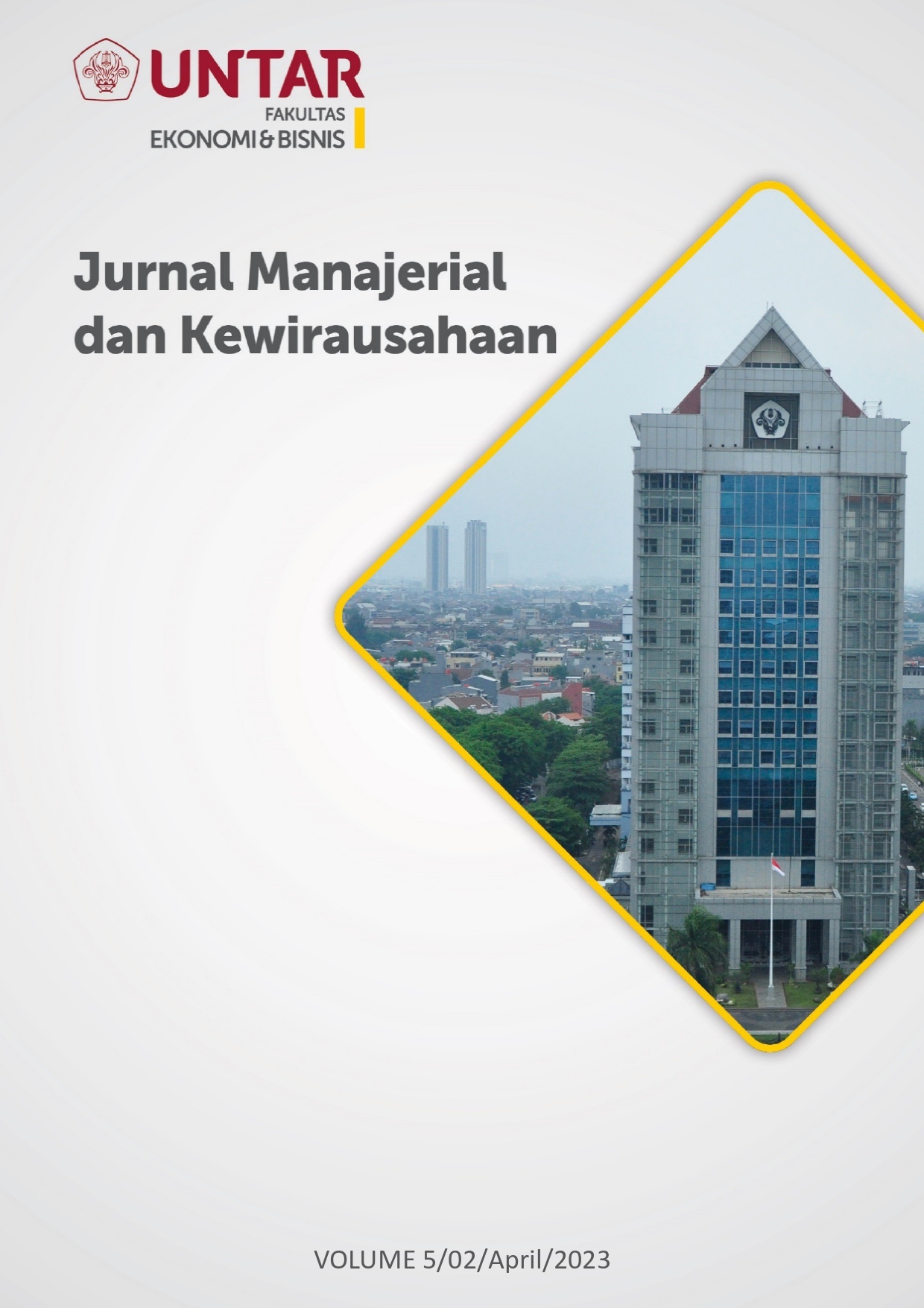Pengaruh Perceived Usefulness dan Confirmation terhadap Continuance Intention Pembelian Tiket Maskapai LCC: Dengan Satisfaction sebagai Mediator
Main Article Content
Abstract
The Covid-19 pandemic has had a negative impact on the aviation industry in Indonesia, such as a decrease in the number of flights. In 2022, the prospects for the aviation industry are starting to recover and it is at this momentum that the aviation industry can maximize the opportunities that exist in capturing the entire consumers available. This study was conducted to test whether there is an effect of perceived usefulness and confirmation to continuance intention with satisfaction as a mediating variable in buying Low-Cost Carrier (LCC) tickets online. Sample collection was carried out through online questionnaires using google form with non-probability sampling techniques and purposive sampling methods. The research sample was processed using SmartPLS 4.0-SEM and used data from 200 respondents who are domiciled in Jakarta, and have used LCC airlines, ordered plane tickets online and bought LCC airline tickets within 1 month. The results of this study on LCC consumers in Jakarta showed that 1) perceived usefulness has a positive effect on satisfaction, but has no effect on continuance intention, 2) confirmation has a positive effect on satisfaction and continuance intention, 3) satisfaction can mediate perceived usefulness and confirmation partially, positively, and significantly to continuance intention.
Article Details
Section

This work is licensed under a Creative Commons Attribution-NonCommercial-ShareAlike 4.0 International License.
This work is licensed under a Jurnal Muara Ilmu Ekonomi dan Bisnis Creative Commons Attribution-ShareAlike 4.0 International License.,/p>
References
Chau, P. Y. K. (1996). An Empirical Assessment of a Modified Technology Acceptance Model. Journal of Management Information Systems, 13(2), 185–204. https://doi.org/10.1080/07421222.1996.11518128
Davis, F. D. (1989). Perceived Usefulness, Perceived Ease of Use, and User Acceptance of Information Technology. In Source: MIS Quarterly (Vol. 13, Issue 3).
Fazal-e-Hasan, S. M., Ahmadi, H., Mortimer, G., Grimmer, M., & Kelly, L. (2018). Examining the role of consumer hope in explaining the impact of perceived brand value on customer–brand relationship outcomes in an online retailing environment. Journal of Retailing and Consumer Services, 41, 101–111. https://doi.org/10.1016/j.jretconser.2017.12.004
Garson, G. D. (2016). Partial least squares regression and structural equation models. Asheboro: Statistical Associates.
Hair, J. F., Howard, M. C., & Nitzl, C. (2020). Assessing measurement model quality in PLS-SEM using confirmatory composite analysis. Journal of Business Research, 109, 101–110. https://doi.org/10.1016/j.jbusres.2019.11.069
Leong, L.-Y., Hew, T.-S., Lee, V.-H., & Ooi, K.-B. (2015). An SEM–artificial-neural-network analysis of the relationships between SERVPERF, customer satisfaction and loyalty among low-cost and full-service airline. Expert Systems with Applications, 42(19), 6620–6634. https://doi.org/10.1016/j.eswa.2015.04.043
Lu, J. (2014). Are personal innovativeness and social influence critical to continue with mobile commerce? Internet Research, 24(2), 134–159. https://doi.org/10.1108/IntR-05-2012-0100
Mukhsin, M., & Ramdani, Y. (2017). Seri Sains dan Teknologi Optimasi Sistem Struktur Cable-Stayed Akibat Beban Gempa. 3(1).
Naufaldi, I. & Tjokrosaputro, M. (2020). Pengaruh Perceived Ease Of Use, Perceived Usefulness, dan Trust terhadap Intention To Use. Jurnal Manajerial Dan Kewirausahaan, 2(3), 715-722. https://doi.org/10.24912/jmk.v2i3.9584
Raman, P., & Aashish, K. (2021). To continue or not to continue: a structural analysis of antecedents of mobile payment systems in India. International Journal of Bank Marketing, 39(2), 242–271. https://doi.org/10.1108/IJBM-04-2020-0167
Tam, C., Barroso, M., & Cruz-Jesus, F. (2022). Understanding the determinants of users’ continuance intention to buy low-cost airline flights online. Journal of Hospitality and Tourism Technology, 13(2), 264–280. https://doi.org/10.1108/JHTT-12-2020-0316
Tam, C., & Oliveira, T. (2016). Understanding the impact of m-banking on individual performance: DeLone & McLean and TTF perspective. Computers in Human Behavior, 61, 233–244. https://doi.org/10.1016/j.chb.2016.03.016
Winata, S. & Tjokrosaputro, M. (2022). The Roles of Effort Expectancy, Attitude, and Service Quality in Mobile Payment Users Continuance Intention. In Proceedings of the tenth International Conference on Entrepreneurship and Business Management 2021 (ICEBM 2021), 121-126. https://doi.org/10.2991/aebmr.k.220501.020

